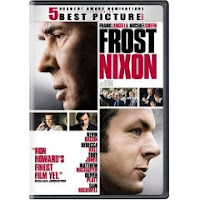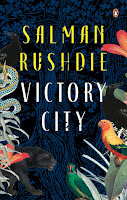A riveting watch. The Watergate affair and Richard Nixon obviously have a hold on public imagination more than 30 years after the actual event. 28 hours of what must have been in reality quite a boring interview has been cut down into 2 hours of suspenseful grilling. Frost is the light-weight British talk show host who gets to interrogate Nixon, 3 years after he resigned from the post of American President. Frost is seeking to make his reputation in American television and Nixon is looking for some form of redemption in the public eye (and a whole load of money in the bargain). It is a verbal duel between a playboy charmer and a dour stonewalling ex-president. Frost, and it seems the whole of America, is looking for some admission of guilt from a man who escaped impeachment by resigning. Nixon is bent on not caving in. The first few parts of the interview go Nixon’s way – Frost comes across as the insubstantial TV personality, unable to get through to a seasoned politician who looks like he is exonerating himself in the public eye. The turning point is a drunken call at night from the President before the final session. It gives Frost the impetus to do some more digging and get to Nixon at the last port, eliciting from him some form of admission of guilt, not too significant an admission, but certainly more than anything he had given before or since. It is an excellent script, there is a superb sense of drama and timing and great acting. Michael Sheen (he played Blair in The Queen) as Frost and Frank Langella as Nixon are both excellent. There are apparently historical inaccuracies (the phone call apparently did not happen and the last interview was carefully scripted by Nixon’s team, says his biographer), but as a piece of cinema, I found it enthralling.
Kate Winslet and Leonardo DiCaprio re-unite after Titanic in a Sam Mendes movie about angst in suburban America. Immortal lovers in their first film together, Kate and Leo now encounter a marriage, kids and an everyday life that saps illusions, dreams and even love. Sam Mendes revisits his American Beauty milieu, this time in ‘50s America.
Frank and April Wheeler meet in a bar, fall in love, get married, have kids and move to a nice suburban house on Revolutionary Road. April had dreams of becoming an actress, dreams that are pretty much thrown out of the window after a disastrous local theatre performance. Frank works at a job he does not like very much at Knox Business Machines. The Wheelers know this life is not what they want, a mundane existence where a house in the suburbs, a car and kids is the American dream. They have not bought into it. They decide to get out of the rut by moving to Paris, where April would work to support Frank as he discovers what it is he wants to do. It is to be their brave move, the move that makes them different from everyone else, that establishes their specialness. But of course it is not to be. As they see their lives descend into the routine of thwarted ambitions, adultery and a third kid on the way, they know there is going to be no Paris, no out.
The slow disintegration of their marriage and their lives and their inability to retain what is inherently special about them is heart breaking. The last breakfast scene where April serves Frank with a smile that has all her shattered dreams behind it, takes something out of you. This film is as emotionally wrenching as American Beauty was. I definitely need to read Yates’ book now.
On a related topic, here is David Foster Wallace’s inspiring commencement speech at Kenyon College.
http://online.wsj.com/article/SB122178211966454607.html
He talks about finding meaning in mundane existences (the lot of most of us). It is a different matter of course, that Wallace later killed himself.






